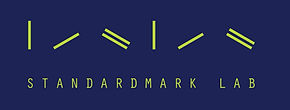
Your Product Benchmarking Services
- The Key To Greater Market
Coating Testing
Coating testing involves evaluating the properties and performance of coatings applied to various surfaces. Coatings are often used for protection, aesthetics, and functionality in industries such as automotive, aerospace, construction, and more. We offers coating testing as follows:
Adhesion Testing
-
Determines how well the coating adheres to the substrate.
-
Methods include cross-cut adhesion test, pull-off adhesion test, and tape adhesion test.
Thickness Testing
-
Measures the thickness of the coating to ensure it meets specified requirements.
-
Techniques include magnetic induction, eddy current, and ultrasonic methods
Hardness Testing
-
Evaluates the coating's resistance to penetration or indentation.
-
Common methods include pencil hardness test, Shore hardness, and indentation hardness (Impact).
Corrosion Testing
-
Determines the coating's ability to protect the substrate from corrosion.
-
Tests include salt spray testing and cyclic corrosion testing.
Cathodic Disbondment Testing
-
Determines the coating's ability to protect the substrate from corrosion.
-
Tests include salt spray testing and cyclic corrosion testing.
Chemical Resistance Testing
-
Evaluates the coating's resistance to chemicals, solvents, and other substances.
-
Testing methods vary based on the specific chemicals involved.
Abrasion Testing
-
Measures the coating's resistance to wear and abrasion.
-
Taber abrasion methods are common.





Flexibility Testing
-
Determines the coating's ability to flex and withstand deformation without cracking.
-
Methods include bending, impact, and conical mandrel tests
Weathering & UV Resistance Testing
-
Assesses how well the coating withstands exposure to sunlight and weather conditions.
-
Techniques include accelerated weathering chambers and natural exposure tests.